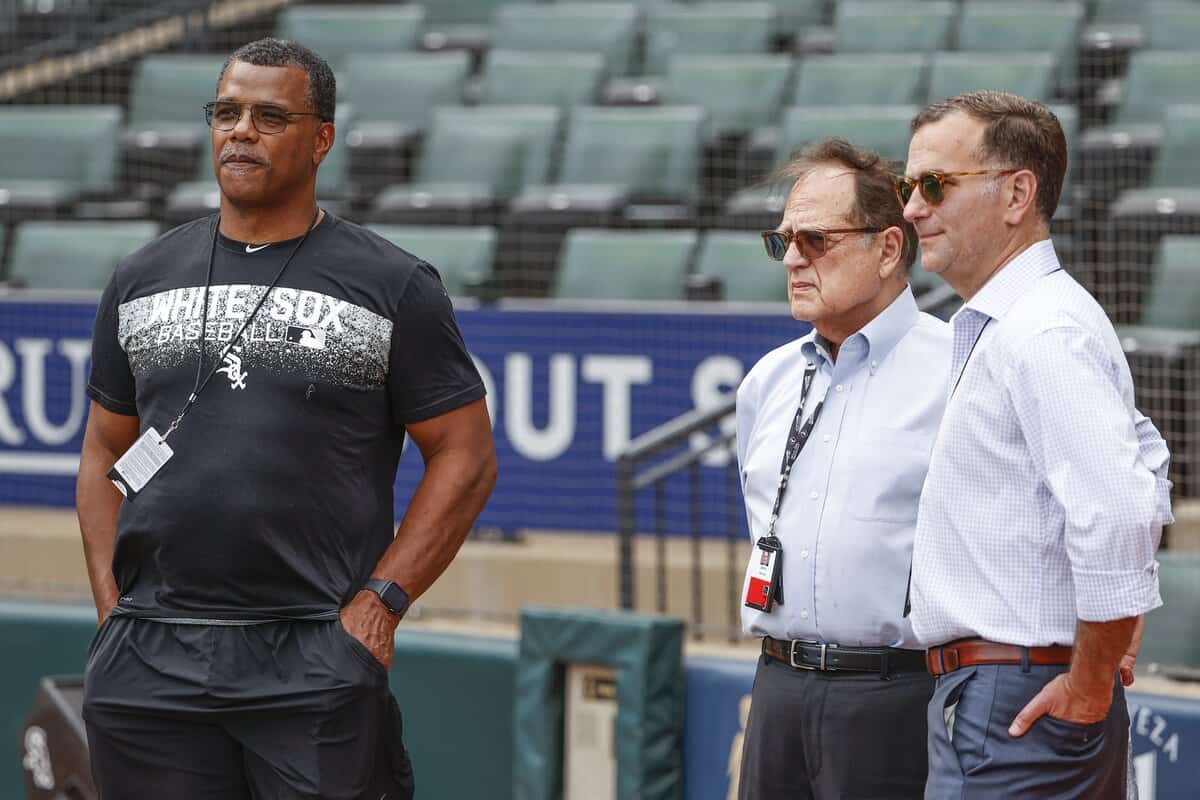The White Sox dodged one bullet from the surge of national media attention when Jeff Passan decided to focus on the people in uniform who were trying their who were trying their best, and not turning on each other the way previous Sox teams had.
The story Ken Rosenthal and Britt Ghiroli on The Athletic this morning, however, delivers one body blow after another. Most of it highlights the shortcomings of Jerry Reinsdorf, whose insistence on running the team in ways he considers adequate leaves them so, so far behind the rest of the league. To the extent that anybody comes away relatively unscathed, it's only because Reinsdorf's predilection for antiquated priorities and convoluted chains of command set them up to fail.
It's a very helpful summary for a national audience that hasn't had reason to pay attention to the White Sox until their slide into ignominy. Those who follow the White Sox closely won't be surprised, especially those who remember the 1995 Cigar Aficionado article that nailed how Reinsdorf's way is the only way that counts ("he was still driven by the dream: to create a World Series winner in a business climate that made sense to him").
However, the value for South Siders doesn't lie in the novelty. It's all in the details.
For instance, White Sox fans could tell you that the franchise was behind the curve analytically, and notice that a lot of the forward-thinking front office additions often lasted only a year, but Rick Hahn could obfuscate by saying listed employees don't include consultants, and that's more or less where the matter would be left.
Here, Rosenthal and Ghiroli say the White Sox outsourced analytics to a company that couldn't give them what other teams were producing for themselves, and even bungled their internal attempts:
Even when they tried to use analytics, the White Sox weren’t sure how. For years, they used two sets of adjusted Trackman data: One, like most teams, they received from a third party, and another was developed by their own analytics people. Sometimes the two sets of data would be dramatically different, making it difficult to evaluate players and write reports. In 2019, a debate about using spin rate versus adjusted spin rate caused internal strife.
“It was comical,” said a former baseball operations employee of different departments using different sets of data. “No one knew what was what.”
Likewise, fans and media were left to guess whether a given transaction was a Kenny Williams Move or a Rick Hahn Move, and while Hahn tried to spin the uncertainty as the product of collaboration, Rosenthal and Ghiroli capture a toxic spirit:
The White Sox finished no better than 17 games out of first place in the first three seasons under Hahn, and announced a shift in philosophy midway through 2016. The club was “mired in mediocrity,” Hahn said, and in need of a rebuild.
But Hahn and Williams had different views on how organizations should be run, and over time, that dynamic impacted the operation of the team, sources say. [...]
The divide manifested further in the polarizing lieutenants each man chose. Williams had his son, Ken Williams Jr., who eventually ascended to assistant farm director. Hahn trusted Jeremy Haber, another Harvard grad. The younger Williams butted heads with many in player development and, despite his inexperience, was quick to offer dissenting views. Haber could be bullish as he advocated for his boss’ point of view and was seen as an aggressive climber. (Both men are no longer in the organization. Williams Jr. declined to comment; Haber did not respond to interview requests.)
The depiction of the Williams/Hahn dynamic reminds me of the mess NBC created trying to transition from Jay Leno to Conan O'Brien, except Hahn could only wish he produced something as inspired as The Slipnutz. Most organizations might've granted Williams an emeritus position as he figured out his next move, but there was never a next move. He just came back, and generated conflict that gave the Sox another internal obstacle to overcome. Most teams compete against 29 organizations. The White Sox have to beat 30.
It all comes back to Reinsdorf. He's loyal, but so is a hoarder, and the impulses that drive him to retain Williams and Hahn and Tony La Russa while impressing his own 1980s philosophies upon the franchise create the same kind of unsanitary environment that needs razing rather than renovation. Rather than admitting fault, he instead projects those problems upon the stadium and neighborhood.
As long as that's the case, there's no reason for White Sox fans to expect better. The only surprises are pleasant ones.






